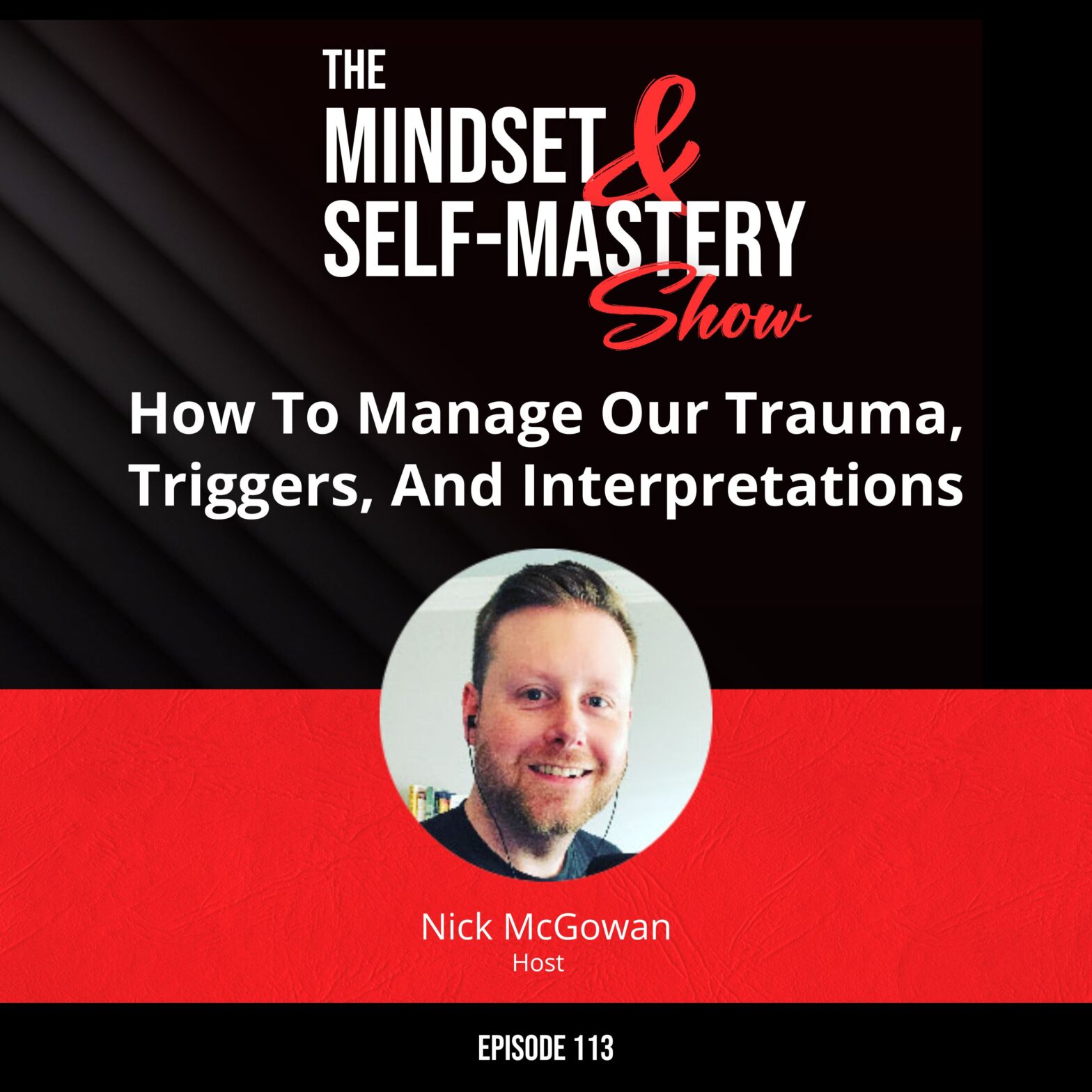Podcast (themindsetandselfmasteryshow): Play in new window | Download
“Your interpretations give weight to those triggers, and those triggers, when they come up because of your traumas, you’re able to do something with each of the three of those pieces. But really, if we get to the core of it and figure out what happened with that trauma and process through that trauma, then you’ll start to see that the trigger will either have a lot less weight to it because you’re not giving it as many interpretations if any at all.”
Episode summary:
Welcome to the Mindset and Self Mastery Show. In this episode, I delve into the concepts of traumas, triggers, and interpretations, exploring their impact on our lives. I emphasize the importance of self-awareness and processing traumas to gain a deeper understanding of triggers and interpretations.
What to listen for:
- I challenge common misconceptions about trauma, explaining that it goes beyond major incidents and can result from smaller, unexpected experiences.
- We explore how our bodies instinctively react to traumas, often triggering fight, flight or freeze responses before our conscious mind kicks in.
- I discuss the enduring nature of triggers and how they can resurface, highlighting the need to recognize and address them for personal growth.
- Learn how self-awareness plays a crucial role in understanding and processing triggers, allowing individuals to trace them back to their core traumas.
- I explore how interpretations add weight to triggers, influencing our emotional responses and shaping the stories we tell ourselves.
“Traumas come in all shapes and all sizes, and what happens from those traumas and those situations will make our body have a reaction to it. Most times, almost all of the time, that body reaction is going to happen before you mentally react or before you can say anything. It’s just a jarring thing that happens where your body goes into a fight, flight, or freeze.”
- Beyond major incidents, traumas can stem from various experiences.
- Instinctive responses, such as fight, flight, or freeze, occur before conscious mental reactions.
- We can and must acknowledge the diversity of traumas and understand the body’s initial responses.
“Trauma is going to move you or freeze you no matter what you want to do. Now, you can do something with it after the fact, but the body’s reaction is still going to happen the way that it’s going to happen.”
- The body’s reaction to trauma is involuntary and occurs independently of one’s conscious control.
- Trauma can propel individuals into action or immobilize them, emphasizing its potent influence on behavior.
- Acceptance that despite personal intentions, the body’s response to trauma is a natural and automatic occurrence.
“Being self-aware, which is a beautiful thing and also a fucking pain in the ass at times. It’s like you can’t not see the things once you’re really self-aware. When I see that my triggers are starting to come up, I can see the different experiences that have stacked upon themselves.”
- Acknowledging the positive aspect of self-awareness while highlighting its sometimes challenging nature.
- Self-awareness unveils truths that cannot be ignored, offering a deeper understanding of oneself.
- How to balance the joys and difficulties of heightened self-awareness in personal growth and development.
Thank you for listening!
Please subscribe on iTunes and give us a 5-Star review! https://podcasts.apple.com/us/podcast/the-mindset-and-self-mastery-show/id1604262089
Listen to other episodes here: https://chooseyourcalling.com/author/Imcgowan/
Watch Clips and highlights: www.youtube.com/channel/UCk1tCM7KTe3hrq_-UAa6GHA
Guest Inquiries right here: nick@chooseyourcalling.com– Your Friends at “The Mindset & Self-Mastery Show”
